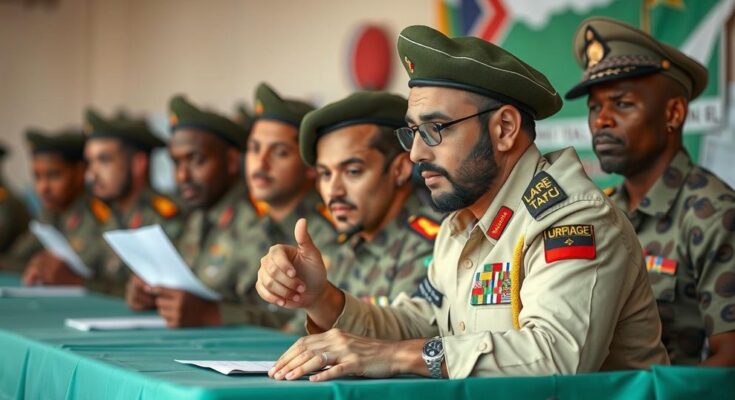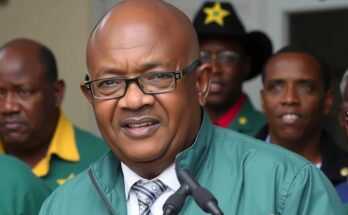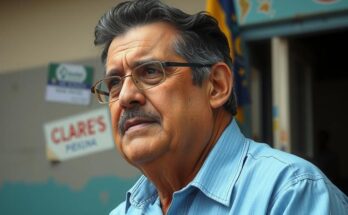Chad conducted a general election aimed at ending military rule, but voter turnout was low at 38%, following an opposition boycott. This election is intended to select a new parliament and local councils as the nation attempts to restore democracy after three years of military governance.
On Sunday, Chad held a general election, a crucial moment the government has characterized as a pivotal stride toward concluding nearly three years of military governance. Despite this significance, voter participation was markedly low, as opposition parties advocated for a boycott of the voting process. Initial reports indicated that only 38 percent of eligible voters participated in the election intended to establish a new parliament, regional assemblies, and local government councils. The elections management agency, A.N.G.E., monitored the turnout figures closely during the day of voting.
Chad’s political landscape has been tumultuous since a military takeover three years ago, which disrupted the democratic process and governance. This election marks an essential attempt by the transitional government to restore democracy and navigate the complex political environment. However, the opposition’s call for a boycott reflects widespread discontent with the current regime, leading to skepticism regarding the legitimacy of the election results and the overall willingness of citizens to engage in the democratic process during this period of uncertainty.
The general election in Chad represents a significant attempt to transition from military to civilian rule; however, low voter turnout highlights the challenges ahead. The opposition’s boycott demonstrates deep-seated disapproval of the current government. As the nation moves forward, the success of this election and its outcomes will be closely scrutinized to assess Chad’s path toward democracy and governance.
Original Source: www.themountaineer.com




